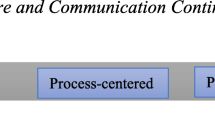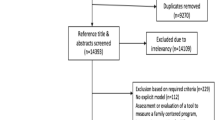Abstract
Introduction
Medical trainees do not have many opportunities to develop communication skills with patients. We established the voluntary “My Life, My Story” (MLMS) program at the Clement J. Zablocki VAMC in Milwaukee, WI, to determine if this pilot narrative medicine program enhanced trainee interpersonal skills and improved patient-centered care.
Methods
Trainees at the Medical College of Wisconsin conducted in-person or virtual interviews of Veterans receiving care at the Milwaukee VAMC about their meaningful life experiences. Post-interview, trainees wrote a short first-person narrative in the Veteran’s voice, which, after the Veteran’s approval, was added to the electronic medical record and made available to the patient’s care team. Trainees, Veterans, and health professionals completed post-interview surveys, from which we conducted descriptive statistics and qualitatively analyzed the text-based feedback.
Results
Between 2020 and 2021, 24 medical trainees participated in our pilot implementation of the MLMS program, conducting a total of 32 interviews. All trainees reported a meaningful personal impact and found the pilot to be “valuable” and “rewarding.” Both trainees and health professionals believed that the MLMS program improved “rapport building” with Veterans. Nearly all Veterans (n = 25, 93%) believed that their medical care team would be able to provide better care after reading their life story.
Conclusions
Narrative medicine initiatives like the MLMS program may enable value-added education for trainees. Future research will allow us to better understand and maximize specific educational gains, while further enhancing patient care.

Similar content being viewed by others
Data Availability
All data generated or analyzed during this study are included in this article.
References
Collaborative TMS. The perceived impact of the COVID-19 pandemic on medical student education and training - an international survey. BMC Med Educ. 2021;21(1):566.
Gard J, Polley C, Cisternino A, Gray A. The void: COVID-19 restrictions and junior doctor education opportunities. Med Teach. 2022;44(11):1290–5.
Chen D, Lew R, Hershman W, Orlander J. A cross-sectional measurement of medical student empathy. J Gen Intern Med. 2007;22(10):1434–8.
Khan R, Martimianakis MA. Empathy, burnout, and the hidden curriculum in medical training. In: Foster AE, Yaseen ZS, editors. Teaching Empathy in Healthcare: Building a New Core Competency. Cham: Springer International Publishing; 2019. p. 239–50.
Maturo A. Medicalization: current concept and future directions in a bionic society. Mens Sana Monogr. 2012;10(1):122–33.
Charon R. To see the suffering. Acad Med. 2017;92(12):1668–70.
Lai CKY, Igarashi A, Yu CTK, Chin KCW. Does life story work improve psychosocial well-being for older adults in the community? A quasi-experimental study. BMC Geriatr. 2018;18(1):119.
Pennebaker JW. Telling stories: the health benefits of narrative. Lit Med. 2000;19(1):3–18.
Sierpina VS, Kreitzer MJ, Mackenzie E, Sierpina M. Regaining our humanity through story. Explore (NY). 2007;3(6):626–32.
Greenberg MA, Stone AA. Emotional disclosure about traumas and its relation to health: effects of previous disclosure and trauma severity. J Pers Soc Psychol. 1992;63(1):75–84.
Arntfield SL, Slesar K, Dickson J, Charon R. Narrative medicine as a means of training medical students toward residency competencies. Patient Educ Couns. 2013;91(3):280–6.
Charon R. The patient-physician relationship. Narrative medicine: a model for empathy, reflection, profession, and trust. JAMA. 2001;286(15):1897–902.
Milota MM, van Thiel G, van Delden JJM. Narrative medicine as a medical education tool: a systematic review. Med Teach. 2019;41(7):802–10.
Chretien KC, Swenson R, Yoon B, et al. Tell me your story: a pilot narrative medicine curriculum during the medicine clerkship. J Gen Intern Med. 2015;30(7):1025–8.
Pinquart M, Forstmeier S. Effects of reminiscence interventions on psychosocial outcomes: a meta-analysis. Aging Ment Health. 2012;16(5):541–58.
Rosti G. Role of narrative-based medicine in proper patient assessment. Support Care Cancer. 2017;25(Suppl 1):3–6.
Chochinov HM, Kristjanson LJ, Breitbart W, et al. Effect of dignity therapy on distress and end-of-life experience in terminally ill patients: a randomised controlled trial. Lancet Oncol. 2011;12(8):753–62.
McKeown J, Clarke A, Repper J. Life story work in health and social care: systematic literature review. J Adv Nurs. 2006;55(2):237–47.
Butler RN. The life review: an interpretation of reminiscence in the aged. Psychiatry. 1963;26:65–76.
Bensadon BA. Psychology and geriatrics: integrated care for an aging population. 1st ed. Elsevier: Academic Press; 2015.
Dean W, Talbot S, Dean A. Reframing clinician distress: moral injury not BURNOUT. Fed Pract. 2019;36(9):400–2.
Overhage JM, McCallie D Jr. Physician time spent using the electronic health record during outpatient encounters: a descriptive study. Ann Intern Med. 2020;172(3):169–74.
Bailey M. Too many tests, too little time: doctors say they face ‘moral injury’ because of a business model that interferes with patient care. The Washington Post; 2020. https://www.washingtonpost.com/health/too-many-tests-too-little-time-doctors-say-they-face-moral-injury-because-of-a-business-model-that-interferes-with-patient-care/2020/01/31/c00e9d58-3d3a-11ea-8872-5df698785a4e_story.html. Accessed 14 May 2023.
Lin SY, Schillinger E, Irby DM. Value-added medical education: engaging future doctors to transform health care delivery today. J Gen Intern Med. 2015;30(2):150–1.
Gonzalo JD, Lucey C, Wolpaw T, Chang A. Value-added clinical systems learning roles for medical students that transform education and health: a guide for building partnerships between medical schools and health systems. Acad Med. 2017;92(5):602–7.
Leep Hunderfund AN, Starr SR, Dyrbye LN, et al. Value-added activities in medical education: a multisite survey of first- and second-year medical students’ perceptions and factors influencing their potential engagement. Acad Med. 2018;93(10):1560–8.
Correro A, Hinrichs K, Nathan S. My life, my story and identity disclosure among transgender and gender diverse veterans: a program evaluation. Transgender Health. 2022;7(6):556–60.
Gately ME, Muccini S, Eggleston BA, McLaren JE. Program evaluation of my life, my story: virtual storytelling in the COVID-19 age. Clin Gerontol. 2022;45(1):195–203.
Nathan S, Fiore LL, Saunders S, et al. My life, my story: teaching patient centered care competencies for older adults through life story work. Gerontol Geriatr Educ. 2022;43(2):225–38.
Nathan S, Woolley AB, Finlay L, Moye J. Teaching pharmacy students and residents patient-centered care through interviewing veterans. Am J Pharm Educ. 2021;85(8):8384.
Roberts TJ, Ringler T, Krahn D, Ahearn E. The my life, my story program: sustained impact of veterans’ personal narratives on healthcare providers 5 years after implementation. Health Commun. 2021;36(7):829–36.
Lam Jeffrey A, Feingold-Link M, Noguchi J, et al. My life, my story: integrating a life story narrative component into medical student curricula. MedEdPORTAL. 2022;18:11211.
Morin R. The difficult transition from military to civilian life. Pew Research Center; 2011. https://www.pewresearch.org/social-trends/2011/12/08/the-difficult-transition-from-military-to-civilian-life/. Accessed 3 May 2023.
Ringler T, Ahearn E, Wise M, Lee E, Krahn D. Using life stories to connect veterans and providers. Federal practitioner: for the health care professionals of the VA, DoD, and PHS. 2015;32:8–14.
Bryer J, Speerschneider K. Likert: analysis and visualization Likert items. 2016. Available from: https://CRAN.R-project.org/package=likert.
Heiberger RM, Robbins NB. Design of diverging stacked bar charts for Likert scales and other applications. J Stat Softw. 2014;57:1–32.
Iannone R. DiagrammeR: Graph/Network Visualization. 2022. Available from: https://github.com/rich-iannone/DiagrammeR.
Braun V, Clarke V. Using thematic analysis in psychology. Qual Res Psychol. 2006;3:77–101.
Huang CD, Jenq CC, Liao KC, Lii SC, Huang CH, Wang TY. How does narrative medicine impact medical trainees’ learning of professionalism? A qualitative study. BMC Med Educ. 2021;21(1):391.
Rogers CR. Significant aspects of client-centered therapy. Am Psychol. 1946;1(10):415–22.
Gilligan C, Brubacher SP, Powell MB. “We’re all time poor”: experienced clinicians’ and students’ perceptions of challenges related to patient communication. Teach Learn Med. 2022;34(1):1–12.
Barry MJ, Edgman-Levitan S. Shared decision making — the pinnacle of patient-centered care. N Engl J Med. 2012;366(9):780–1.
Acknowledgements
We thank Adina Kalet, MD, Lana Minshew, PhD, Jeff Fritz, PhD, MS, MATL, Jessica Olson, PhD, MPH, and Nitish Thareja, MS, for their review of this manuscript. We are grateful to the Veterans and healthcare health professionals of the Clement J. Zablocki VA Medical Center in Milwaukee, WI, for their participation and feedback. We also thank the volunteers from the Milwaukee VAMC and MCW for their support.
Funding
This work was supported by the Departments of Psychiatry and Behavioral Medicine, and Psychology at the Clement J. Zablocki Veterans Affairs Medical Center (Milwaukee, WI, USA). S.K.T. is a member of the Medical Scientist Training Program at MCW, which is partially supported by a training grant from the National Institute of General Medical Sciences, T32-GM080202.
Author information
Authors and Affiliations
Corresponding author
Ethics declarations
Ethics Approval
An administrative review by the Research Office at the Clement J. Zablocki VAMC in Milwaukee, WI, occurred and determined that the MLMS program did not meet the definition of research. MLMS is an approved operations activity at the Milwaukee VAMC. All survey feedback was obtained in an anonymous format. Program activities were carried out in accordance with relevant guidelines and regulations.
Conflict of Interest
The authors declare no competing interests.
Additional information
Publisher's Note
Springer Nature remains neutral with regard to jurisdictional claims in published maps and institutional affiliations.
Supplementary Information
Below is the link to the electronic supplementary material.
Rights and permissions
Springer Nature or its licensor (e.g. a society or other partner) holds exclusive rights to this article under a publishing agreement with the author(s) or other rightsholder(s); author self-archiving of the accepted manuscript version of this article is solely governed by the terms of such publishing agreement and applicable law.
About this article
Cite this article
Thareja, S.K., Laridaen, J., Puls, I. et al. Harnessing Patient Life Stories to Engage Medical Trainees in Strengthening Veteran-Provider Relationships. Med.Sci.Educ. 33, 1155–1163 (2023). https://doi.org/10.1007/s40670-023-01854-4
Accepted:
Published:
Issue Date:
DOI: https://doi.org/10.1007/s40670-023-01854-4




